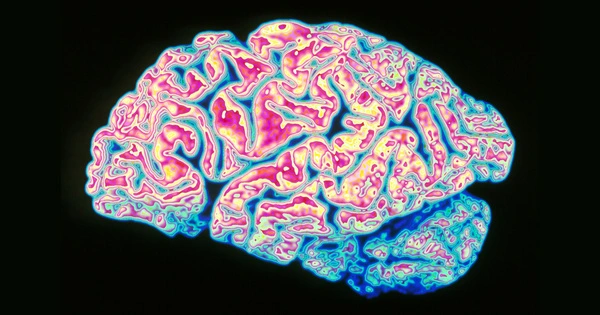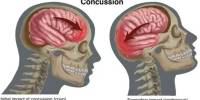Deep sleep has been shown to be important for memory consolidation and overall cognitive function. While research is ongoing, several studies suggest that optimizing deep sleep may have potential benefits in mitigating Alzheimer’s disease-related memory loss.
Deep sleep, also known as non-REM slow-wave sleep, can act as a ‘cognitive reserve factor,’ increasing resilience against beta-amyloid, a protein in the brain linked to dementia-related memory loss. A deep slumber may help buffer against memory loss in older adults facing an increased burden of Alzheimer’s disease, according to new research from the University of California, Berkeley.
Deep sleep, also known as non-REM slow-wave sleep, can act as a “cognitive reserve factor” by increasing resilience against beta-amyloid, a protein in the brain linked to dementia-related memory loss. Sleep disruption has previously been linked to a faster accumulation of beta-amyloid protein in the brain. However, new research from the University of California, Berkeley, reveals that superior amounts of deep, slow-wave sleep can act as a protective factor against memory decline in those with high levels of Alzheimer’s disease pathology – a potentially significant advance that experts say could help alleviate some of dementia’s most devastating outcomes.
“With a certain level of brain pathology, you’re not destined for cognitive symptoms or memory issues,” said Zsófia Zavecz, a postdoctoral researcher at UC Berkeley’s Center for Human Sleep Science. “People should be aware that, despite having a certain level of pathology, there are certain lifestyle factors that will help moderate and decrease the effects.
“One of those factors is sleep and, specifically, deep sleep.”
With a certain level of brain pathology, you’re not destined for cognitive symptoms or memory issues. People should be aware that, despite having a certain level of pathology, there are certain lifestyle factors that will help moderate and decrease the effects. One of those factors is sleep and, specifically, deep sleep.
Zsófia Zavecz
The study, published Wednesday in the journal BMC Medicine, is the latest in a long line of research aimed at curing and preventing Alzheimer’s disease.
Alzheimer’s disease, the most common form of dementia, destroys memory pathways and, in advanced stages, impairs a person’s ability to perform basic daily tasks. One in every nine people over the age of 65 has the progressive disease, a figure that is expected to rise rapidly as the baby boomer generation ages.
In recent years, scientists have investigated how beta-amyloid deposits relate to Alzheimer’s disease and how such deposits affect memory in general. In addition to being an essential component of memory retention, the UC Berkeley team previously discovered that a person’s declining amount of deep sleep could act as a “crystal ball” to predict a faster rate of future beta-amyloid buildup in the brain, after which dementia is more likely to set in.

Years of education, physical activity, and social engagement are widely thought to strengthen a person’s resilience to severe brain pathology, essentially keeping the mind sharp despite poor brain health. These are referred to as cognitive reserve factors. Most of them, however, such as previous years of education or the size of one’s social network, cannot be easily changed or modified retroactively.
According to Matthew Walker, a UC Berkeley professor of neuroscience and psychology and the study’s senior author, the concept of cognitive reserve became a compelling target for sleep researchers.
“If we believe that sleep is so critical for memory,” Walker said, “could sleep be one of those missing pieces in the explanatory puzzle that would tell us exactly why two people with the same amounts of vicious, severe amyloid pathology have very different memory?”
“If the findings supported the hypothesis, it would be thrilling, because sleep is something we can change,” he added. “It is a modifiable factor.”
To answer that question, the researchers enlisted the help of 62 older people from the Berkeley Aging Cohort Study. Participants, who were healthy adults who had not been diagnosed with dementia, slept in a lab while researchers used an electroencephalography (EEG) machine to monitor their sleep waves. The researchers also used a PET scan to determine the amount of beta-amyloid deposits in the participants’ brains. Half of the participants had significant amyloid deposits, while the other half did not.
After sleeping, the participants completed a memory task in which they matched names to faces.
Those who had high levels of beta-amyloid deposits in their brains and also had more deep sleep performed better on the memory test than those who had the same amount of deposits but slept less well. This compensatory boost was only available to those who had amyloid deposits. Deep sleep had no additional supportive effect on memory in the group without pathology, which was understandable given that there was no demand for resilience factors in otherwise normal cognitive function.
Deep sleep, in other words, bent the arrow of cognition upward, dampening the otherwise detrimental effects of beta-amyloid pathology on memory.
The researchers went on to control for other cognitive reserve factors, such as education and physical activity, in their analysis, and sleep still showed a significant benefit. This suggests that sleep, in addition to the other factors mentioned, helps to preserve memory function in the face of brain pathology. According to the researchers, these new findings highlight the importance of non-REM slow-wave sleep in mitigating some of the memory-impairing effects of beta-amyloid deposits.
















